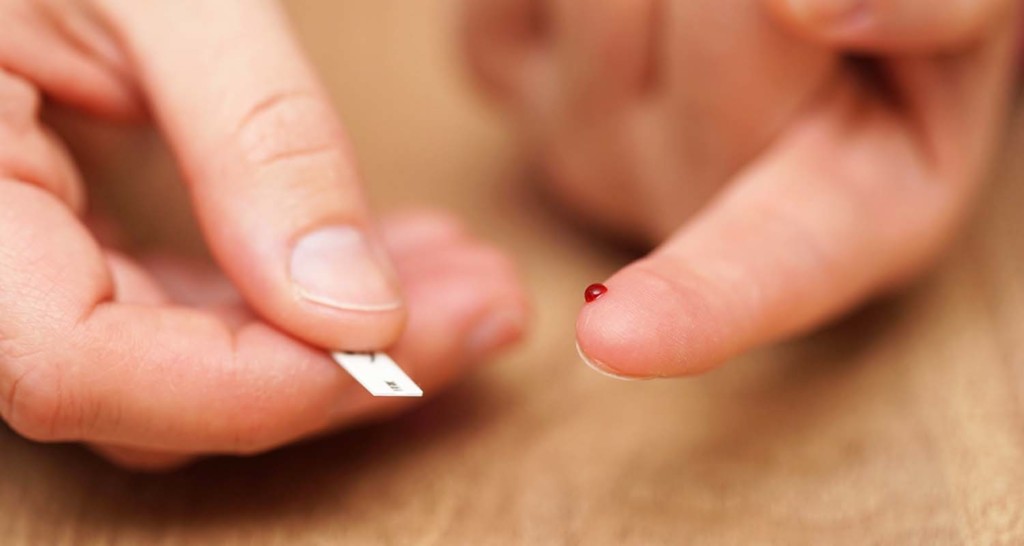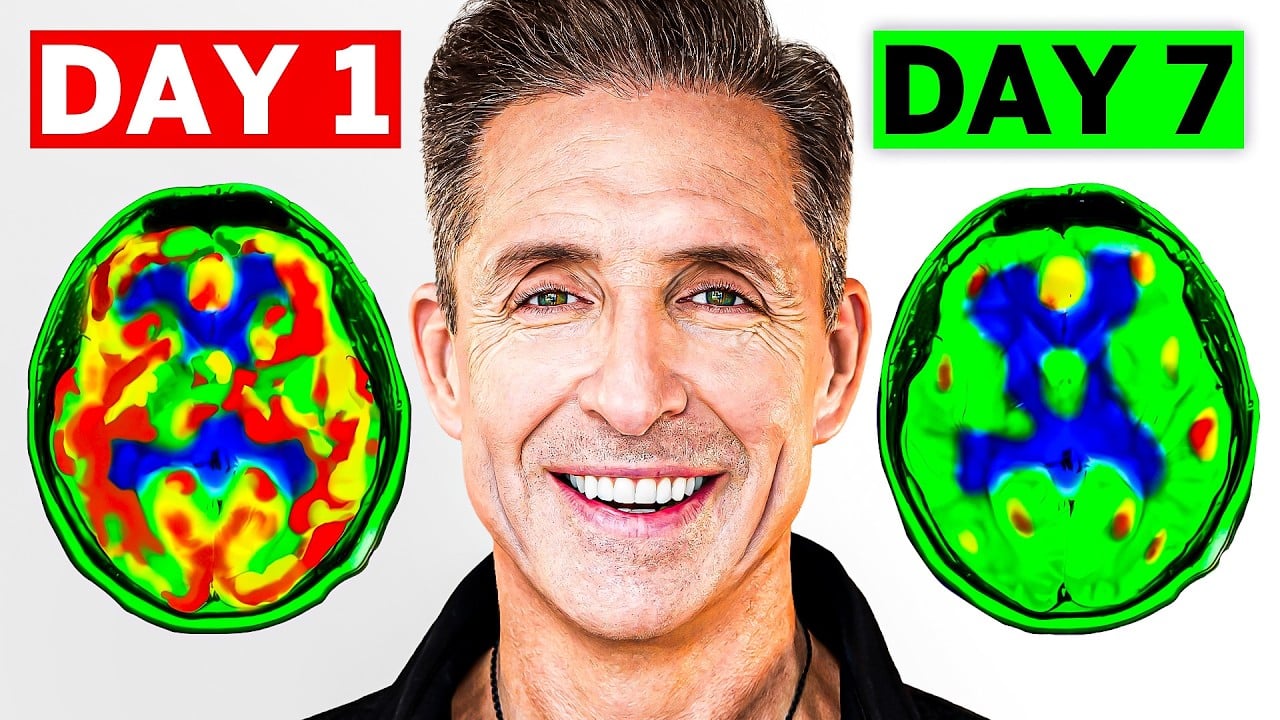
- Telomeres are caps of DNA at the ends of chromosomes that protect your cells from aging.
- These caps naturally wear down over time until they get so short that they can no longer protect the cell. Short telomeres are linked to chronic and degenerative diseases like cancer and Alzheimer’s, and early death.
- Scientists view telomere length as a reliable marker of your biological age (as opposed to your age by years.)
- Telomeres naturally shorten over time, but you can protect and lengthen your telomeres with meditation, exercise, and a diet full of healthy fats and vegetables.
Take a moment and picture the plastic tips on shoelaces — they protect the ends and stop the string from fraying. That’s one way scientists describe telomeres — caps of DNA at the ends of chromosomes that protect your cells from aging.
These caps naturally wear down over time. Each time a cell copies itself, telomeres shorten. They get shorter and shorter until they can no longer protect the cell. The cell then either stops growing or it dies in a process called apoptosis — or cellular suicide. Short telomeres are linked to a weakened immune system, chronic and degenerative diseases like cancer and Alzheimer’s, and early death. Find out how you can hack your telomeres to live longer and better.
Telomeres and aging
The rate at which telomeres shorten could determine the pace at which you age. Scientists view telomere length as a reliable marker of your biological age (as opposed to your age by years.)[ref url=”https://www.ncbi.nlm.nih.gov/pmc/articles/PMC5514388/ “]Telomeres naturally shorten over time, but certain habits, like smoking, excessive stress, not exercising, and a diet full of processed foods can accelerate the process. People with shorter telomeres than the average length for their age group have a higher risk for serious disease and early death.[ref url=” https://www.ncbi.nlm.nih.gov/pmc/articles/PMC3370421/ “] Shorter-than-average telomeres have been linked to heart disease and heart failure,[ref url=”https://www.ncbi.nlm.nih.gov/m/pubmed/17397675/”][ref url=”https://www.ncbi.nlm.nih.gov/m/pubmed/17043079/ “] cancer,[ref url=”https://www.ncbi.nlm.nih.gov/pubmed/17416776″][ref url=”https://www.ncbi.nlm.nih.gov/m/pubmed/19217888/”] diabetes,[ref url=”https://www.ncbi.nlm.nih.gov/m/pubmed/16443874/”] and osteoporosis.[ref url=”https://www.ncbi.nlm.nih.gov/m/pubmed/17347788/”]
In one study, people over 60 with shorter telomeres had a three times higher risk of dying from heart disease, and an eight times higher risk of dying from an infectious disease. [ref url=”https://www.ncbi.nlm.nih.gov/m/pubmed/12573379/”]
During a recent Bulletproof Radio (iTunes) podcast episode, Elissa Epel, PhD, a psychology professor at the University of California, San Francisco, and author of “The Telomere Effect,” says, “When we measure telomeres in midlife, they’re a pretty reliable predictor of who gets disease early and, in some studies, who dies early, so they do matter when we’re older.”
Telomeres and stress
While age and genes have the biggest influence on telomere length, stress follows closely behind.[ref url=”http://www.apa.org/monitor/2014/10/chronic-stress.aspx”] In one study from George Mason University, women with kids had telomeres 4.2 percent shorter, or the equivalent of 11 years, than women without children. According to the researchers, the stress of child-rearing may be to blame.
Related: Moms Age 11 Years Faster, Says New Study. Here’s How to Stop It
In another study, also of women, those with the highest levels of perceived stress had telomeres shorter by the equivalent of one decade than women who said they experienced less stress.[ref url=”https://www.ncbi.nlm.nih.gov/m/pubmed/15574496/ “]
That’s an important finding — how you view your stress has as much bearing on telomere length as environmental stress. Learning to manage and lower your stress is a powerful way to preserve your telomeres and put the brakes on aging.
The type of stress also matters, and determines how big the impact is on telomere length. While adult stress can shorten telomeres,[ref url=”https://www.sciencedirect.com/science/article/pii/S0968000402021102″] people who experience multiple traumas like abuse and neglect as children have higher odds of developing shorter telomeres as adults.[ref url=” http://www.pnas.org/content/early/2016/09/28/1525602113″] Exposing the body to many years of high arousal accelerates cellular aging, more than single stressful events. “Childhood events may embed epigenetically and alter gene expression almost permanently,” write researchers in one study.
How you can lengthen and protect your telomeres
The good news is that you have a lot of control over the wear-and-tear of your telomeres. And even if you have shorter telomeres, it’s not a done deal — you can lengthen them with certain habits and behaviors. Here’s how to do it:
Meditate
Since how you perceive your stress counts, finding ways to feel more in control is key. Meditation gives you that time and space to sort out your thoughts, so you can recognize which worries are valid, and which are not. This changes your perception and experience of stress. A 2009 paper suggests that mindfulness meditation lowers stress, which in turn could preserve telomeres.[ref url=”https://www.ncbi.nlm.nih.gov/pubmed/19735238 “] Another study found that women who practiced loving kindness meditation (a technique that encourages compassion) had longer telomeres than women who didn’t.[ref url=”https://www.sciencedirect.com/science/article/pii/S0889159113001736 “] Carve out time each day (put it in the calendar if you have to) to quieten your thoughts and focus on your breath. Even a quick five-minute meditation in the middle of your workday can calm your nervous system and do wonders for your sense of wellbeing.
Related: 50 Shades of Zen: How to Meditate For More Results In Less Time
Limit exposure to air pollution
If you live near a highway or have a long commute, this one could be hard. But air pollution does affect telomere length. One study found that traffic officers had shorter telomeres than people who worked in an office.[ref url=” https://www.ncbi.nlm.nih.gov/m/pubmed/19772576/”] Consider investing in a high-efficiency particulate (HEPA) air filter, and sleep with your windows closed if you live near a busy road.
Get active
Yet another benefit of exercise — it reduces oxidative stress and boosts proteins that help stabilize telomeres. [ref url=”https://www.ncbi.nlm.nih.gov/m/pubmed/19948976/”] In one study, men and women who didn’t exercise much or at all were biologically older by 10 years than those who were very active. But you don’t need to run a marathon or put in hours each day at the gym. People who do moderate aerobic exercise just 45 minutes, three times a week, have telomeres similar in length to marathon runners.[ref url=”https://www.ncbi.nlm.nih.gov/pmc/articles/PMC5546536/”]
“There is such a marginal benefit of being a marathoner versus being a moderately fit person who’s doing endurance jogging,” says Epel. “There are other more important things to do than to exercise for hours a day.”
But take note office workers: “It’s not just how active you are,” says Epel, “it’s really how much sitting you do, so people like me are in trouble. I exercise every day, but I sit on my butt for hours the rest of the time.” Get up regularly from your desk — at least once every hour — and walk around or do some stretching. A standing desk, although pricey, is a great long-term investment in your health.
Maintain a healthy weight
Obesity causes telomeres to wear down quicker. One study found that the loss of telomeres in obese people was equivalent to 9 years of life.[ref url=”https://www.ncbi.nlm.nih.gov/m/pubmed/19255364/”] One way to keep your weight steady is to practice intermittent fasting — when you cycle in and out of periods of eating and not eating. Intermittent fasting not only boosts weight loss, it makes cells more resilient and promotes cellular repair. It also lowers oxidative stress — when free radicals overpower the antioxidants in the body. Since oxidative stress shortens telomeres, reducing this type of stress will help preserve them.[ref url=”https://www.ncbi.nlm.nih.gov/pubmed/14623283″]
Related: The Ultimate Guide to Intermittent Fasting for Beginners
Boost your NAD+ levels
Nicotinamide adenine dinucleotide (known as NAD+) is a coenzyme, found in every cell, that rewires your metabolism and activates sirtuins — proteins that help maintain the length of your telomeres.[ref url=”https://www.ncbi.nlm.nih.gov/pubmed/18337721/”] Since NAD+ levels drop as you get older, consider taking supplements of this coenzyme or practice intermittent fasting, which increases NAD+ supplies.
Load up on healthy fats and veggies
One study found that telomeres didn’t shorten as quickly in people with high levels of omega-3 fatty acids than people with low levels of the fats.[ref url=”https://www.ncbi.nlm.nih.gov/m/pubmed/20085953/ “] Another study found that women with shorter telomeres and lower levels of vitamin C, vitamin E, and beta carotene had an increased risk of developing breast cancer.[ref url=”https://www.ncbi.nlm.nih.gov/m/pubmed/19089916/”] Eat plenty of lightly cooked leafy greens and broccoli, berries, wild salmon, and other fatty fish.
“Eat your damn vegetables,” says Michael Fossel, MD, PhD, author of “The Telomerase Revolution”, in a Bulletproof Radio (iTunes) podcast. “It’s really not rocket science when it comes to maintaining telomeres.” But he emphasizes that moderation is key: “You need a good diet, but if what you do is end up stressing yourself worrying about it the whole time, you’ll just undercut yourself. Chill out, relax, go meditate.”
Give TA-65 supplements a try
Made from a Chinese root, this supplement claims to activate telomerase — the enzyme that rebuilds telomeres. A 2009 study found that TA-65 increased telomere length and lessened DNA damage in mice. But before you rush out to buy it, it doesn’t come cheap — expect to shell out $600 for a three-month supply. A slightly cheaper option is cycloastragenol — believed to be the active ingredient of TA-65. One study found that, like TA-65, it activated telomerase in mice.[ref url=”https://www.ncbi.nlm.nih.gov/pubmed/25095809″]
Test your telomeres at home
You can now order telomeres testing kits in the mail. With the prick of a finger or swab of a cheek, companies like TeloYears and Titanova tell you how your telomeres compare in length to others your age. Whether the information is accurate is another story — people have received conflicting results when trying different tests.[ref url=”http://www.kpbs.org/news/2017/may/19/teloyears-titanovo-telomere-testing/ “] [ref url=”https://www.nytimes.com/2013/12/31/science/i-had-my-dna-picture-taken-with-varying-results.html”]
Most scientists agree that while knowing your telomere length could nudge you to adopt healthier habits, there are still too many unknowns. For instance, it’s not clear whether telomeres are the same length throughout all tissues and cells of the body.[ref url=”https://www.ncbi.nlm.nih.gov/pmc/articles/PMC3166469/”] So a test that analyses telomeres in saliva may be offering just a small snapshot of the bigger picture.
Tests typically cost around $100 a pop — money perhaps better spent on a fresh farmer’s market haul or new walking shoes.

















